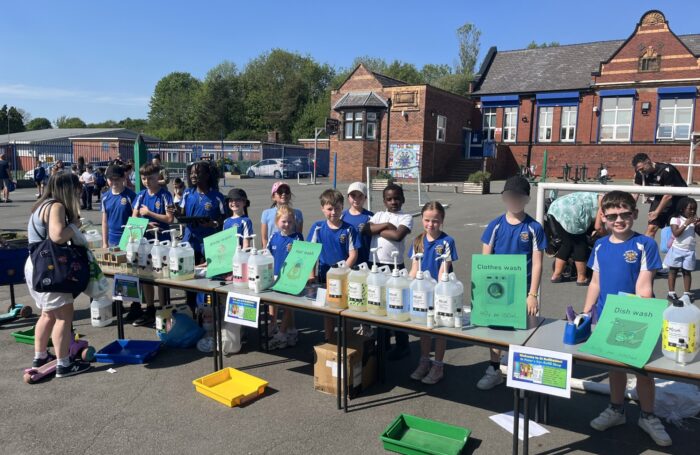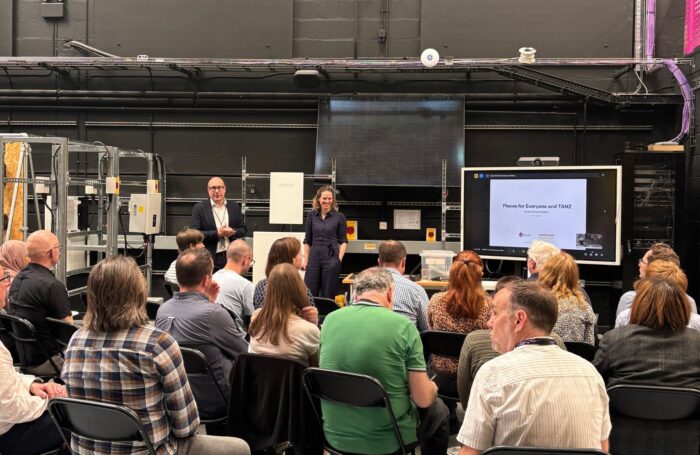Launched in July 2021, the Greater Manchester Retrofit Task Force is leading on a three-year programme which aims to tackle the climate crisis through innovative finance solutions and building the supply and demand for the skills and jobs needed to grow the supply chain.
Decarbonising the heating of our homes is critical as this is our second biggest source of carbon emissions (after transport), as well as making them cheaper to run, critical with the current energy price rises we’re all experiencing. Those of you already ‘in the know’ on sustainable lifestyles are aware that we need to dramatically reduce the amount of energy our buildings consume to keep us warm, cool and healthy.
Basically, our buildings need to retain the heat we put in them to stay warm and be “thermal efficient”. There are over 880,000 homes, 2,700 public buildings and as yet unknown number of commercial buildings that will need some form of renovation by 2038. Most of us would probably admit that our homes could use some additional insulation or draught proofing especially if our house has an EPC of D or below (those certificates which are becoming increasingly important when we are looking to move homes as energy process rise).
Consequently, such a massive challenge needs a systematic approach to make any in-roads to making our homes less dependent on gas or oil and helping the region meet its carbon-neutral target by 2038. This is why the Retrofit Task Force was established in May 2021 to help tackle Greater Manchester’s urgent retrofitting challenge.
The Task Force brings together industry, academia, Non-Governmental Organisations, financiers and the public sectorto set out a detailed plan for Greater Manchester, as the UK’s leading green city region, to take a lead on retrofitting.
The first RetrofitGM report detailing the action for the next three years has recently been approved and we will be in a position to procure contractors for delivery in February.
We are not starting with a blank page. This year alone we’re investing £27m into our Green Homes Grant renovating fuel-poor homes bringing more people out of fuel poverty thanks to better insulation with modern, environmentally friendly heating systems that are lower carbon.
We are also investing £78m in renovation and low carbon energy generation for over 150 public buildings this year including: leisure centres, schools and offices as well as investigating new financial products to make it easier and fairer for people to make the change to net zero carbon.
A new Retrofit Skills Hub has also been established, offering courses to 1,140 people to upskill into green jobs and training to get more people working on renovation projects and boost the skills and talent pipeline. We are also introducing policies that will ensure all new homes will be net zero carbon by 2028.
RetrofitGM: the benefits
There are so many reasons why we are driving forward this programme to tackle the climate crisis:
- We can address the housing crisis and create good quality skilled jobs by training people in skills in jobs for life in green industries, and deliver better, more energy-efficient homes that are cheaper to run.
- A greener economy in GM will create and secure over 256k jobs across all sectors in GM by 2038 with 90,000 in retrofit alone. These are high skilled, sustainable, secure jobs in emerging sectors.
- Residents can benefit through fuel bills reducing by as much as £600 a year. Not only does this save money but it reduces the risk of people needing health and social care due to the health risks posed from cold, damp poorly insulated homes.
- If you run a business, investment today will mean you have more revenue tomorrow. You’ll have greater fuel security, be able to better plan and manage your variable costs and invest more of the money you make back into your business.
- Our children and wider families will benefit from over 1,000 new apprenticeships on offer in Greater Manchester linked to net zero; we’ll also be upskilling 85,000 people currently in existing construction jobs, so they have job security and relevant skills.
- Our local public services will save money on the expensive energy bills that currently come from heating our hospitals, council buildings, care services and offices; that’s savings that can be invested into our local public services.
By working together and doing things differently we can help address climate change, improve living standards and `level up’ by embracing the new green industrial revolution. Bring it on!
Next month’s RetrofitGM blog will focus on priority area 1: Boosting skills



